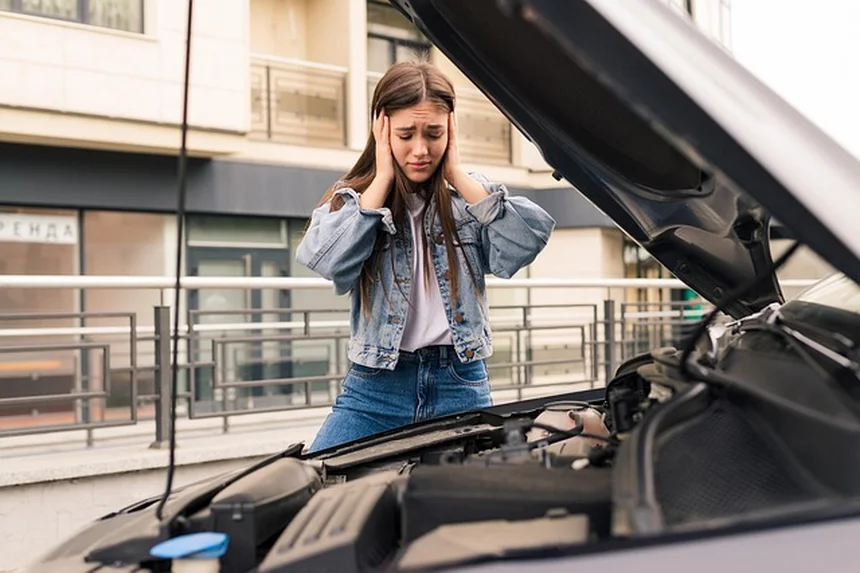Do I Need Insurance to Register a Car? Here's What You Must Know!
- Apr 18,2025
Do I need insurance to register a car? The answer is a resounding yes! Most states require proof of insurance before you can even register your vehicle. This isn't just a bureaucratic hurdle; it's about protecting yourself financially. Imagine being in an accident without coverage—those repair bills and medical expenses can pile up faster than you think! That's why having insurance is crucial, not just for legal compliance but for your peace of mind. In this guide, we'll dive into the specifics of why insurance is non-negotiable, how state requirements vary, and what options you have if you're concerned about costs. So, buckle up and let's get you on the road to understanding your insurance needs!
E.g. :Does Urgent Care Take Insurance? Your Complete Guide to Coverage and Costs
- 1、🚗 Do You Need Insurance to Register a Car? The Ultimate Guide
- 2、🤔 What If You Can't Afford Insurance Right Now?
- 3、🚨 The Hidden Dangers of Skipping Insurance
- 4、🎯 Smart Strategies for First-Time Registrants
- 5、🔮 Future-Proofing Your Vehicle Registration
- 6、💡 Final Thoughts Before You Hit the Road
- 7、FAQs
🚗 Do You Need Insurance to Register a Car? The Ultimate Guide
💡 Why Insurance is Non-Negotiable
Picture this: You're cruising down the highway when suddenly - bam! - a fender bender happens. Without insurance, you're looking at thousands in repair bills, medical expenses, and potential lawsuits. That's why 48 states require proof of insurance before you can even register your vehicle.
Here's the deal - insurance isn't just about following the law. It's your financial safety net when life throws curveballs. We've all seen those viral videos of hailstorms demolishing cars or hit-and-run accidents. Would you want to pay for those damages out of pocket? Exactly. That's why getting insured before registration is like wearing a seatbelt - it's basic protection you can't afford to skip.
🔍 How State Requirements Vary
Now, here's where things get interesting. While most states demand insurance, the specifics differ wildly. Check out this comparison of three states:
| State | Minimum Coverage | Penalty for No Insurance |
|---|---|---|
| California | $15k injury/$30k accident | $100-$200 fine + car impound |
| Texas | $30k injury/$60k accident | Up to $350 first offense |
| New Hampshire | None required | Must prove financial responsibility |
See what I mean? Your zip code dramatically affects your insurance needs. That's why I always recommend checking your state's DMV website before heading to the registration office. Pro tip: Bookmark the page - these requirements change more often than you'd think!
🤔 What If You Can't Afford Insurance Right Now?
 Photos provided by pixabay
Photos provided by pixabay
💰 Budget-Friendly Options That Work
Let's be real - insurance premiums can sting, especially for new drivers. But here's some good news: most states offer low-cost insurance programs for qualifying drivers. In California for example, the CLCA program provides basic coverage for about $400/year - that's less than your monthly cell phone bill!
Another option? Increase your deductible. By raising it from $500 to $1000, you could slash your premium by 15-30%. Just make sure you've got that emergency fund ready. Remember what my dad always said: "Being uninsured is like playing Russian roulette with your bank account."
⏳ Temporary Solutions That Won't Break the Law
Need to register today but insurance starts tomorrow? No sweat! Many insurers offer instant proof of insurance via email or app. I once helped my cousin register her car using a digital insurance card while waiting for her physical copy to arrive.
Here's a quick checklist for same-day registration:• Digital insurance card (most states accept these)• Policy number (call your agent if needed)• Payment method for registration fees• Valid ID and vehicle title
🚨 The Hidden Dangers of Skipping Insurance
💸 Financial Risks That'll Keep You Up at Night
Think registration without insurance sounds tempting? Let me tell you about my neighbor's horror story. He drove uninsured for "just a week" and rear-ended a luxury SUV. The $28,000 repair bill? All on him. That's more than most people make in six months!
But wait - it gets worse. Many states impose "SR-22 requirements" after insurance lapses, which can triple your rates for years. Is saving $100/month worth potentially paying thousands later? That's like refusing to buy a $10 umbrella and then complaining about $500 dry cleaning bills after getting caught in a downpour!
 Photos provided by pixabay
Photos provided by pixabay
💰 Budget-Friendly Options That Work
Here's something most people don't realize: Driving an unregistered vehicle often voids your insurance. That means even if you have coverage, it might not protect you if you haven't completed registration. Talk about a catch-22!
Most states use automatic license plate readers now. These high-tech cameras scan thousands of plates daily, flagging uninsured vehicles. Get caught, and you could face:• Immediate fines ($100-$500)• Registration suspension• Vehicle impound fees ($150+/day)• Court appearances
🎯 Smart Strategies for First-Time Registrants
📋 The Paperwork Hack That Saves Hours
After helping dozens of friends register their cars, I've perfected the paperwork process. Create a "registration kit" with:1. Printed insurance documents2. Original title (or loan paperwork if financed)3. Smog certificate (if required)4. Two forms of ID5. Checkbook for fees
Pro tip: Make color copies of everything before heading to the DMV. Why? Because the one time you don't will be when they need an extra copy! Trust me on this one.
🔄 What to Do When Your Situation Changes
Life happens - maybe you're moving states or adding a teen driver. Here's my golden rule: Notify your insurer before making vehicle changes. I learned this the hard way when my sister borrowed my car and got into a fender bender. Because I hadn't updated my policy, the claim process became a nightmare.
Major changes requiring insurance updates:• Change of address (even within same state)• Adding/removing drivers• Vehicle modifications• Usage changes (like ridesharing)
🔮 Future-Proofing Your Vehicle Registration
 Photos provided by pixabay
Photos provided by pixabay
💰 Budget-Friendly Options That Work
Mark your calendar for these critical dates:• Insurance renewal (set reminders 30 days prior)• Registration expiration (most states mail notices)• Policy review (compare rates annually)
Fun fact: You can often save 10-15% by shopping around at renewal time. I saved $217 last year by spending 20 minutes comparing quotes online. That's basically getting paid $651/hour to browse websites!
🚘 Special Cases Worth Knowing About
Some situations require extra attention:• Classic cars (often need special policies)• RVs and motorhomes (coverage differs by state)• Business vehicles (personal policies may not cover)• Rideshare drivers (need commercial endorsements)
Remember my friend who bought a food truck without proper insurance? Yeah, let's just say his "minor fender bender" turned into a six-figure lawsuit. Don't be like Mike - when in doubt, call your insurance agent!
💡 Final Thoughts Before You Hit the Road
🤝 Building a Relationship With Your Insurer
Here's an insider secret: Loyalty often pays in the insurance world. After three claim-free years with the same company, you might qualify for:• Accident forgiveness• Decreasing deductibles• Premium discounts up to 20%
I've been with my insurer for eight years, and they've waived two small claims thanks to my clean record. That's customer service you can't buy!
❓ Still Have Questions?
Don't guess - ask! Your local DMV has specialists who can clarify requirements. Many even offer online chat now. And remember: No question is too basic when it comes to protecting your wheels. After all, your car isn't just transportation - it's freedom on four wheels!
When it comes to the question, do I need insurance to register a car? the answer is a resounding yes for the vast majority of us! As we've explored, having insurance before registration isn't just a legal requirement in most states; it's a vital step in safeguarding your financial future. Imagine the peace of mind that comes with knowing you're covered if something unexpected happens on the road. I've seen firsthand how devastating it can be when someone tries to cut corners, only to face astronomical repair bills or legal troubles later on. So, I urge you to not only check your state's requirements but also consider your own financial protection. If you have any doubts or questions, don't hesitate to reach out to your local DMV or insurance agent. Remember, getting insured is like putting on a seatbelt; it’s a small step that can save you from huge headaches later on. Let's protect ourselves and our vehicles, shall we? 🚗💼
Additionally, it's important to stay informed about changes in insurance laws or requirements in your state. For example, states like California and Texas have specific coverage amounts, and penalties for not complying can be steep. If you're a new driver or new to car ownership, consider joining local forums or groups for shared experiences and tips. This way, you can learn from others who were once in your shoes and avoid common pitfalls. Staying proactive about your car insurance and registration can help ensure that your driving experience remains smooth and enjoyable. Let's keep our roads safe together! 😊
E.g. :California: Do I need proof of insurance to register a used car ...
FAQs
❓ Do I really need insurance to register my car?
Yes, in most states, you need to provide proof of insurance before you can register your vehicle. This is crucial because it protects you financially in case of accidents or damages. Think of it as your safety net—just like wearing a seatbelt! If you want to avoid hefty bills and potential legal issues, getting insured should be your first step before heading to the DMV.
📋 What are the minimum insurance requirements in different states?
The minimum insurance requirements vary by state. For example, California requires $15,000 for injury and $30,000 for accidents, while Texas has higher limits at $30,000 for injury and $60,000 for accidents. However, New Hampshire doesn’t require insurance but does ask for proof of financial responsibility. It’s essential to check your state’s specific laws before registering to ensure you're compliant and protected.
💰 What if I can't afford insurance right now?
If you're struggling with insurance costs, don't worry—many states offer low-cost insurance programs for qualifying drivers. For instance, California has the CLCA program, which provides basic coverage for around $400 a year. Additionally, you could consider raising your deductible to lower your premium. Just make sure you have some savings set aside to cover that deductible if needed.
🚨 What are the consequences of driving without insurance?
Driving without insurance can lead to serious financial and legal repercussions. You could face fines ranging from $100 to $500, vehicle impound fees, and even registration suspension. Plus, if you get into an accident, you could be stuck with the entire repair bill. It's really not worth the risk—being insured protects your wallet and your peace of mind.
🔄 How often should I review my insurance policy?
It's a good idea to review your insurance policy at least once a year, especially around your renewal time. This helps you compare rates and ensure you're getting the best coverage for your needs. I saved over $200 last year just by taking the time to shop around online! Regularly updating your policy can help you take advantage of discounts and avoid paying more than necessary.
